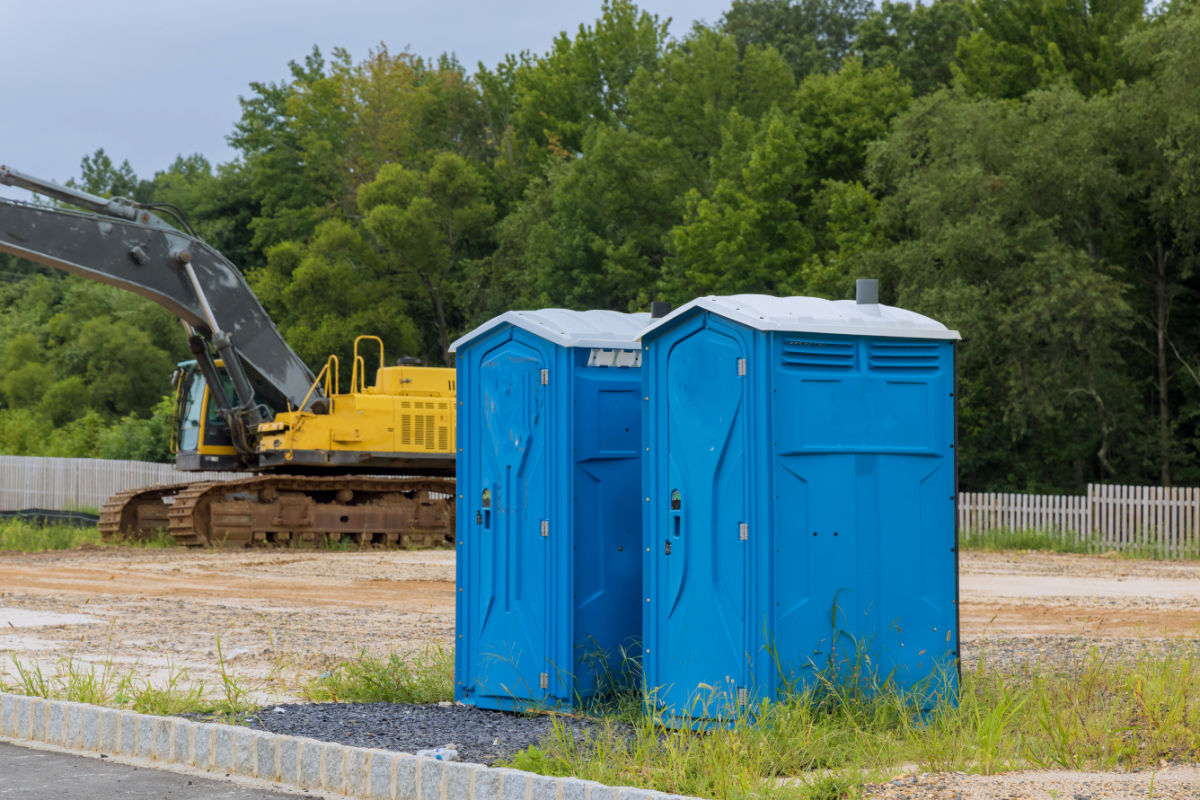From proper sanitation practices to the importance of regular maintenance, our expert insights empower you to create facilities that meet health standards and enhance worker satisfaction. Stay compliant, boost morale, and ensure a hygienic construction site.
Proper hygiene on construction sites
Upholding cleanliness on construction sites holds immense significance for the overall health, safety, and operational efficiency of all personnel involved. Implementing consistent and simple hygiene practices can yield substantial benefits, ensuring a conducive work environment and minimising potential risks.
The adage "little and often" encapsulates the philosophy that can drive substantial improvements. Basic routines like cleaning up after tasks and ensuring tidy workspaces ought to be standard practices.
Elevating these practices to policies, reinforced through contractor training, can embed cleanliness into the site's culture. Regular small-scale cleanups not only foster orderliness but also facilitate comprehensive cleaning by dedicated teams during their visits.
A cornerstone of site hygiene is strict adherence to health and safety guidelines. Beyond legal obligations, such compliance ensures both cleanliness and conformity. It paves the way for uninterrupted projects and sustained productivity.
Safety extends to the proper storage of hazardous materials, mitigating potential harm to site workers. Critical areas requiring meticulous attention include walkways, access points, and emergency exits, which should remain debris-free to minimise accidents.
Access to clean drinking water is equally vital, supported by clear labelling of potable sources. Crucially, legal requirements dictate the provision of appropriate washing facilities, including portable toilets, on construction sites. Regularly serviced and hygienically maintained, portable toilets align with health and safety mandates, temporarily meeting this essential need.

Providing suitable portable units is the law
n the realm of construction, ensuring the provision of suitable and ample portable units is more than a preference; it's a legal obligation. In accordance with health and safety regulations, construction sites are mandated to offer appropriate facilities that cater to the needs of workers, fostering a hygienic and conducive environment.
To address the diverse workforce on construction sites, it is advisable to maintain a ratio of one toilet for every seven individuals working a standard 40-hour week. This ratio accommodates both male and female construction workers, promoting inclusivity and equal access to necessary amenities.
Equally vital is the maintenance of adequate stock supplies within these facilities. Regular replenishment of these supplies during routine servicing and maintenance, often conducted in collaboration with contractors, is crucial. Ideally, this servicing should occur on a weekly basis, although increased frequency might be necessary to maintain the cleanliness and functionality of waste tanks.
The significance of proper hygiene extends beyond sanitation facilities to encompass effective washing amenities. Providing adequate washing facilities not only promotes personal hygiene but also curbs the potential spread of bacteria and cross-contamination among workers. In line with promoting employee welfare, the provision of welfare units stands as a fundamental requirement.
These units serve as essential spaces where staff and contractors can freshen up and cleanse themselves during breaks. Mobile mini-units, equipped with heating mechanisms and water heaters, fulfil these needs efficiently. These compact units offer the basics necessary for maintaining hygiene, ensuring that the on-site workforce has access to clean and comfortable environments.
Hygiene and Construction workers' welfare
Chemical Toilets
In instances where the installation of flushing toilets is impractical, portable chemical toilets, also known as plastics, can serve as an acceptable alternative. These types of toilets are particularly valuable on temporary and smaller construction sites. Additionally, they may be used to supplement permanent facilities, especially in remote sections of larger construction sites.
FlushiNG Toilets
Wherever possible, it is advisable to provide flushing toilets. These toilets should ideally be connected to mains water and drainage systems. This ensures a more convenient and efficient waste disposal process. However, in situations where such connections are not feasible, toilets equipped with built-in water supply and drainage tanks can be utilised to maintain sanitary conditions.
Washing
Proper washing facilities are integral to maintaining hygiene standards on construction sites. These facilities should be strategically placed in close proximity to toilets and changing rooms. Comprehensive washing facilities should include the following components:
Clean Water: Provision of hot and cold, or warm running water for effective cleaning.
Cleaning Agents: Availability of soap or other suitable cleaning products.
Drying Options: Provision of towels or alternatives for proper drying. Environment: Adequate ventilation and lighting to ensure a comfortable and hygienic space.
Showers: Depending on the nature of the work being carried out, the inclusion of showers may also be necessary.
Hand Washing Considerations: Sinks and washbasins should be designed to facilitate thorough washing of hands, face, and forearms.
The size of the sink and the location of the taps must allow for proper washing procedures. It's important to note that some portable toilets only offer hand sanitiser and a small sink, which might be inadequate. Portable toilets with larger sinks and access to hot or warm water can contribute significantly to proper hand hygiene.
Separation from Eating Areas: An essential hygiene consideration is to ensure that hand washing takes place in separate areas from those designated for eating and drinking. This separation becomes particularly crucial when workers are exposed to hazardous substances like cement, lead, or microorganisms. The goal is to minimise the risk of contamination and safeguard worker well-being.
Drinking Water
A sufficient and easily accessible supply of drinking water is a non-negotiable requirement for construction sites. This water should be sourced from a main supply to ensure its quality. In cases where stored or bottled water is used, regular rotation is necessary to prevent staleness or contamination. To facilitate proper hydration, the provision of cups or other drinking outlets is essential.
Lockers and Changing Rooms
Securing personal belongings and ensuring proper changing facilities are crucial for worker comfort and security. Changing rooms should be conveniently located, with separate units for both men and women. Lockers are essential for storing clothing and valuables safely. These lockers can be situated in the site office or within designated vans on smaller sites, provided they are adequately secured. If there's a possibility of protective site clothing contaminating everyday clothing, separate lockers or storage areas are recommended.
Facilities for Rest and Eating
Construction workers require spaces for rest and meals that offer shelter, comfort, and amenities. Rest areas should provide protection from inclement weather conditions and be equipped with heating systems. Adequate seating and tables with backrests contribute to a comfortable environment. Additionally, appliances like microwave ovens and electric kettles are vital for heating drinks and food. It's important to ensure that these rest areas are not used for equipment or material storage, allowing them to serve their primary purpose effectively.
Common Hygiene issues for Construction workers
Maintaining impeccable hygiene on construction sites is imperative for worker well-being and safety. Key considerations encompass various aspects to ensure a clean and secure environment.
Toilet Facilities: Adhering to the BS6465-1-2006 standard is vital when employing chemical toilets. Providing one plastic toilet for every seven workers on a 40-hour workweek is recommended. Regular servicing and emptying, typically weekly, are essential. Additional units may be necessary based on usage.
Gender Inclusivity: Separate, lockable facilities are required for shared toilets. Adequate sanitary waste disposal for women must be provided. Unisex sinks can be shared for hygiene practices, while separate, lockable unisex shower areas can be implemented.
Electrical Safety: Precautions are vital for electrically heated water in toilets. Using 240v installations, not 110v, ensures safety.
Effective Cleaning: Regular cleaning routines are vital. Frequency should align with site conditions. High-traffic or muddy sites may require more frequent cleaning.
Supplies: Maintaining a constant stock of essentials like toilet paper, soap, and paper towels is crucial.
Ventilation and Lighting: Adequate ventilation and lighting ensure comfort and hygiene.
Toilets 4 Hire Ltd provides reliable and comfortable portable toilets and shower units for domestic and commercial customers throughout Cheltenham, Tewkesbury, Cirencester & Stroud. Whether you are having temporary water supply issues or are hosting large outdoor events, our portable facilities are well-suited to any situation.

